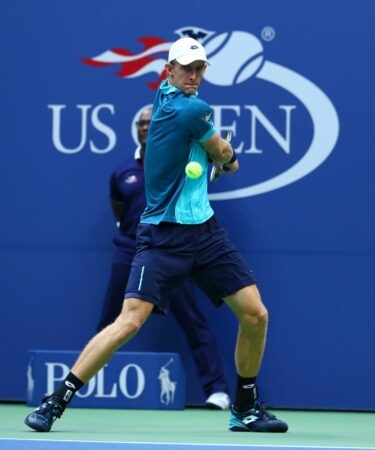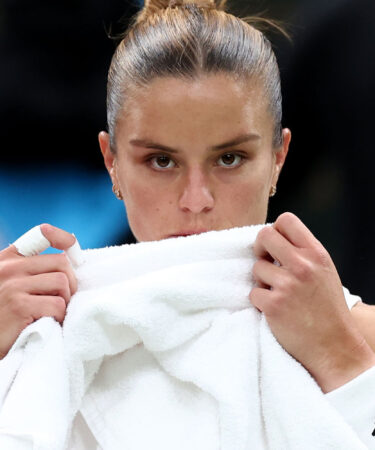Tennis and the Tokyo Olympics: A brilliant, yet complicated relationship
The Olympics offers tennis players a chance to transcend their sport and elevate their profiles. But those who chose to skip the Tokyo Games have their reasons as well. Join us for a closer look into why the games can be a career-changer and why some still choose to take a pass.
 Tokyo Olympics 2020
Tokyo Olympics 2020
Tennis at the Olympics – to play or not to play? For many top-ranked tennis players this simple question is complicated by a plethora of subtle minutae, especially in 2021, as a phenomenon known as bubble fatigue runs rampant on the tennis tour, threatening mental health and overall job satisfaction.
Though the Tokyo Olympics offers a potential remedy in the form of a career-changing experience, this year’s tennis event is wedged in the middle of a jam-packed section of the tennis calendar, at a time where players typically come out of a post-Wimbledon respite to make the pilgrimage to North America for the US Open Series.
Taking a detour to Tokyo, to play a tournament inside of a strict bubble, with no spectators in attendance, is a big ask. That is why thirteen of the ATP’s current top-25 are not in the draw, along with seven of the WTA’s top-25. Among those names are true sporting legends like Rafael Nadal, Roger Federer and Serena Williams.
In light of the lack of interest from many players, we wondered: Why are the Olympics, considered to be the pinnacle of sport by most, often shunned by tennis players?
Here is what we found…
Kevin Anderson: It’s a very jam-packed calendar
There is an undeniable disconnect between the potential gains of playing the Olympics – fame, pride, financial enrichment, camaraderie – and the drawbacks. Former world No 5 and 2008 Olympian Kevin Anderson says it is a matter of each individual’s taste.
“I think it’s really a tough one,” Anderson, who did not qualify for the Tokyo Games, said of the decision to play the Olympics for his peers. “Everybody is going to have different reasons, obviously from the outset, just with the pandemic and protocols, it’s been very difficult and challenging week in and week out, so from that standpoint I can sort of sympathize with some of the players, and on the tennis circuit as well, just a few weeks later you have Canada, Cincinnati, US Open, and then we are looking at potentially going back for Shanghai, then [back to the US for] Indian Wells – it’s a very jam-packed calendar.”
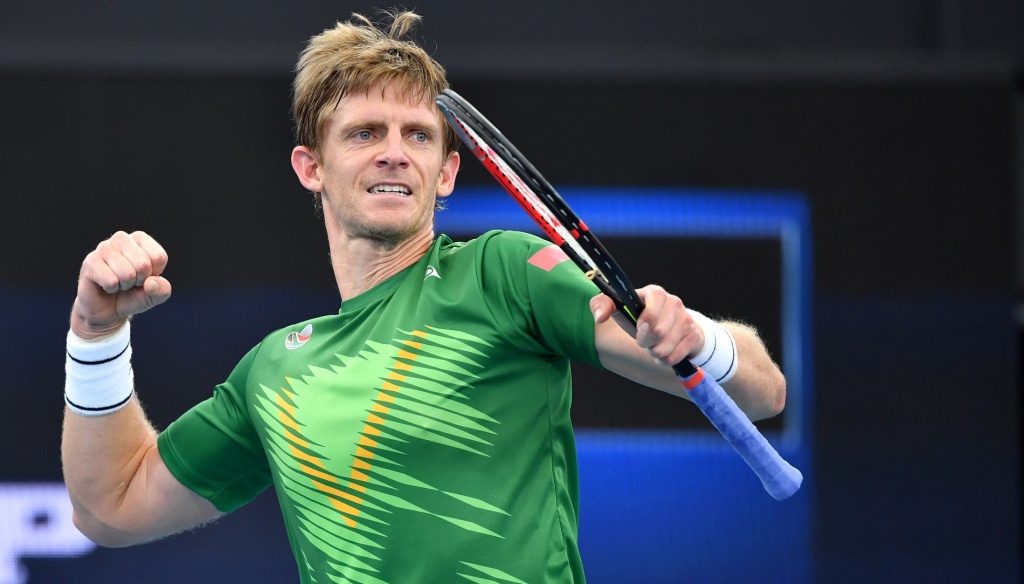
Aside from the calendar and the bubble, there is also the elephant in the room: the fact that the Olympics doesn’t award ranking points or prize money. Many players are happy to play for their country, but in a season when there are so many factors weighing on the players’ minds, all factors must be taken into account.
Some players, like Greece’s Maria Sakkari, just want to drape the flag around them and go for Gold….
Tom Hill, coach of Maria Sakkari: Olympics are different for everybody
Maria Sakkari’s coach, Tom Hill, is thrilled to be in the Olympic Village, and honoured to take part in the Tokyo Olympics, even if he is aware of the difficulties.
“I think the Olympics is different for everybody, I guess if some athletes have played in the Olympics in the past, and having no fans and maybe Covid worries, I can understand why some athletes have decided not to come,” he told Tennis Majors. “For Maria it’s her first time and I know for her being Greek, how important it is for her.”
Hill wants to make it clear that the women’s singles event is still packed with top players, despite the absence of some top players. And he’s right. Nine of the top-10 in the WTA’s Race to Shenzhen will be in the draw, and Hill and Sakkari can’t wait to take a shot at a medal.
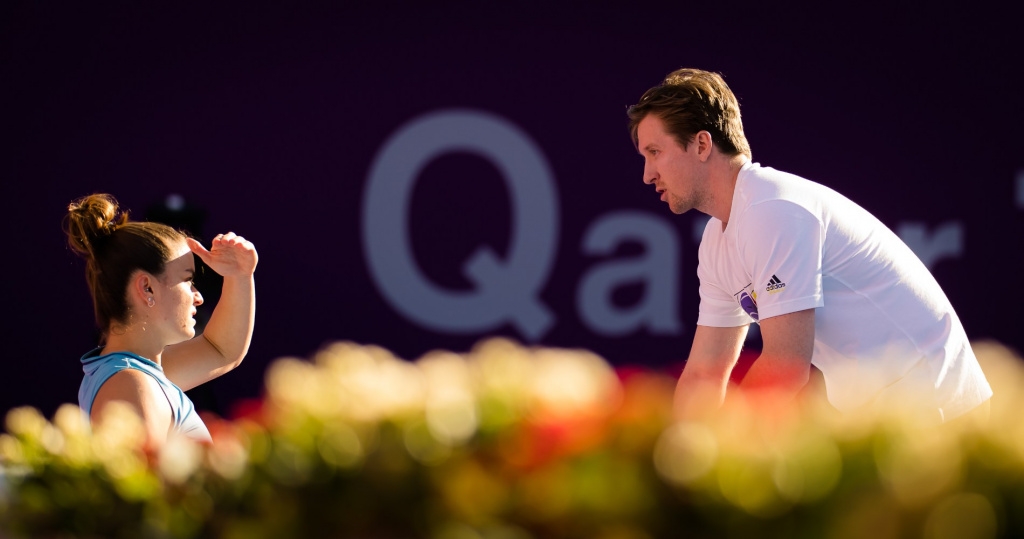
“For myself as well, it’s my first Olympics, I’m super excited to be here,” Hills says. “We’re just going to be go out there and do the best that we can. Even though there has been some big names that have pulled out, especially in the women’s draw there are still many, many top players. Okay, maybe we’ve had like three or four top-20 players pull out, but in the women’s game it’s going to be tough. For us we’re just enjoying it, we’re enjoying being in the village, and being around all these world-class athletes, so it’s exciting.”
Does Hill feel that the Olympics will be slightly diluted, because of the opt-outs and the lack of spectators in Tokyo?
“Definitely not,” he says. “Like I said in the women’s game there are still many, many top players playing, just because Azarenka, Andreescu and Kenin, maybe Kerber, I can’t think of anyone else, just because they’re not playing doesn’t mean that it won’t be an incredible achievement, so whoever wins the Olympics, or gets silver or bronze, has done incredibly well.”
Tennis Agent James Beres: Olympics are such a unique case
Success at the Olympics can mean more than a medal. It can literally change a player’s profile and elevate their status in the sporting world. James Beres, an agent for Topnotch Management who oversees the careers of current Olympians like Jennifer Brady, Jeremy Chardy, Alison Riske and non-Olympians like Cameron Norrie and Reilly Opelka, knows the ins and outs of the decision to play the Olympics.
He says he strongly advises that Topnotch players go for Gold, but only if the decision fits with their schedule and planning.
“The Olympics are such a unique case because in tennis, the four Slams happen every year, so that’s always on the calendar, you know those are the big four major events,” he says, adding: “But because the Olympics are so rare and a player may only have one or two opportunities at most to play them, we definitely would encourage, if an athlete does have the possibility to attend the Olympics, and it fits with their schedule and it’s something that makes best sense for them from a planning perspective, yes we’re all for it on that side and want to support that.”
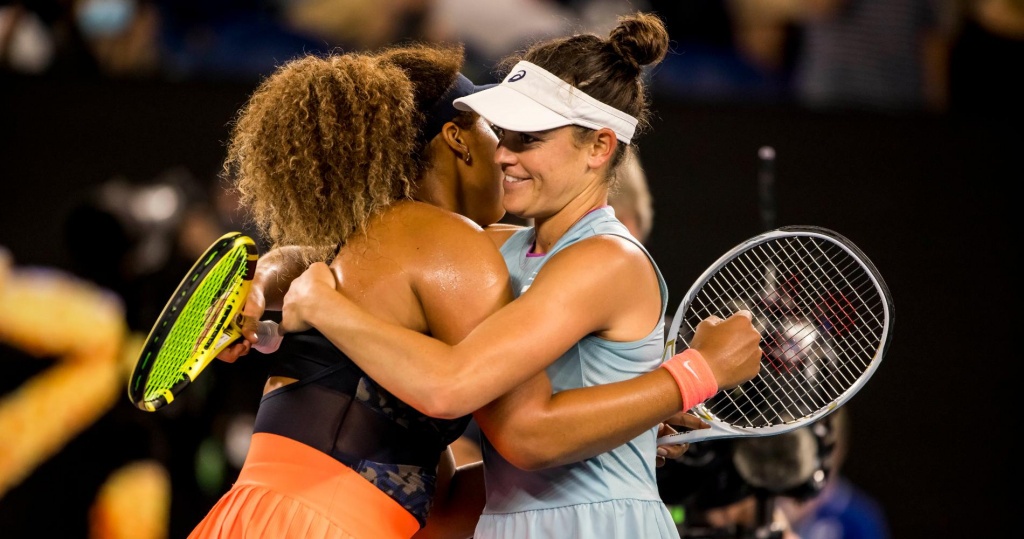
Winning a tour-level title, or even a Grand Slam can be a game-changer for a player in terms of their endorsement viability. But winning Olympic Gold? It’s another dimension.
“From a sponsor and brand opportunity perspective it definitely opens a door to a completely new world,” he says. “When you are crowned a Gold medal Olympian, it’s something that not many people in the world can say.”
Beres says that success at the Olympics exposes a tennis player to a wider net of sports fans, and blue-chip brands really warm to the universal notoriety that Olympians achieve.
“If you are just a casual fan you may not know about Madrid or Miami,” he said. “You’ve probably heard of Wimbledon, but it’s still hard for some people to grasp how big a Slam may be, but for a Gold medal it’s something that is so unique, it’s a rarefied air, people are definitely astonished when you have that.”
Sometimes the view is different from inside the tennis community. The players often don’t recognize – or appreciate – what the Olympics can do for their earning potential.
Anderson: Olympics doesn’t hold the same weight for tennis players
Anderson has his own opinion on the Olympics as a tennis event, and it is one – like it or not – that is shared by many. He says the fact that the tennis season is so chock-full of prestigious events, makes the Olympics less desirable.
“As important as the Olympics are I think it would be amiss to try and pretend that it holds exactly the same weight as it does in athletics and the way these men and women are periodizing their whole calendars four years out to their crowning moment,” he said. “With tennis we look at the four Grand Slams each year, so I mean it’s kind of weighing up those two, everybody would have different sort of goals.”
Olympics as a springboard: another compelling reason to participate
Andy Murray, two-time Olympic Gold medallist, has always been one of the staunchest supporters of Olympic tennis, and for good reason. The Scot used the Olympics to gain valuable experience that he then put to work on the Grand Slam stage later in the same season. Who could forget the jubilant nature of Murray’s 2012 Olympic moment, when he rocketed past Roger Federer in the final on Wimbledon’s Centre Court?
A month later Murray was no longer the man that had lost his first four major singles finals – he was an Olympic Gold medallist. And it was that reborn Andy Murray that broke through to win his first major title at the 2012 US Open, defeating Novak Djokovic in the final.
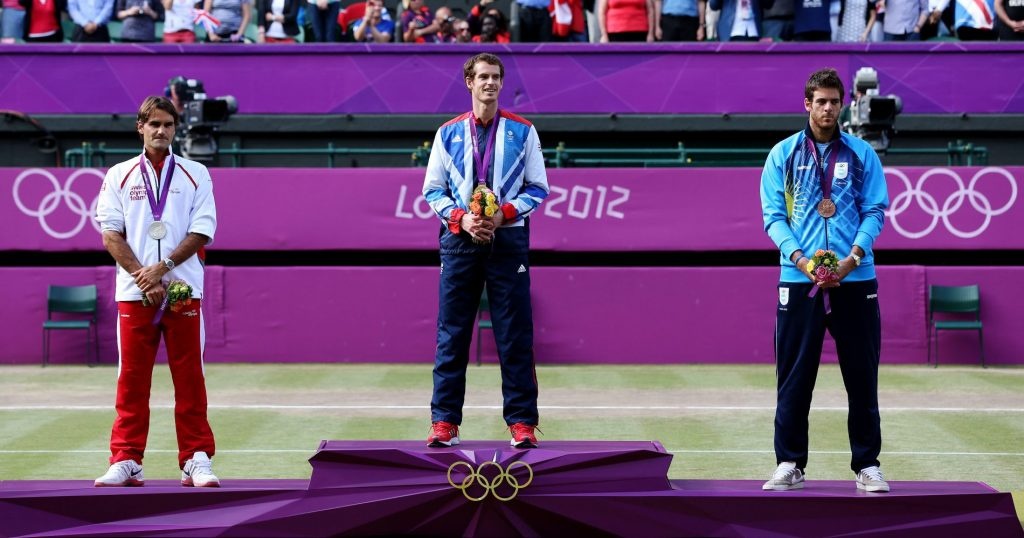
This year in Tokyo, there are several players who could take their game to the next level on the biggest stage in sport. Daniil Medvedev, Stefanos Tsitsipas and Alexander Zverev come to mind on the men’s side. Each has lost been shut out in their previous Grand Slam finals, but all three are considered to be knocking on the door of super stardom. Just think what an Olympic Gold medal could do for them.
On the women’s side, Sakkari, who held a match point in her Roland-Garros semi-final against Barbora Krejcikova before falling short, is a name that comes to mind. Aryna Sabalenka, still learning to combat her nerves and expectations on the Grand Slam stage, is another.
Both could potentially parlay an Olympic run into a step up at the Slams later this summer.
Hill: No pressure, just play
Hill, when asked if he thought the Olympics could do for Sakkari what it did for Murray, says he does not want the Greek to feel that type of pressure in Tokyo.
“I definitely think the Olympics is an important tournament for everybody, especially as you only get one chance every four years,” he said. “But I don’t want to put any extra pressure on it. I think if you were to ask a player, if they could win the Olympics or a Grand Slam, I believe they would say a Grand Slam. But I would put the Olympics kind of in the same bracket as like Indian Wells, Miami, some of the Premier Mandatories, so yes, if you look at it that way, winning a tournament like that can definitely give you the confidence to move on to bigger and better results.
“But at the same time it’s the same players that all these players are competing against, week-in and week-out, so ultimately it comes down to the player to just mentally believe in themselves. Maria’s playing great, she has a chance, but she has a chance in every tournament – for me that’s my approach to it.”
No matter which tournament, Sakkari embodies the Spartan mentality. The Olympics will be no different. But it’s easy to imagine what a Gold medal could do for the psyche of Sakkari. It could be her ticket to the next level of greatness that she has been working for.
“That’s what great with working with Maria,” Hill said. “I feel like we’re both young and we’re both ambitious and we push each other to achieve more. When we lost in the semis of Miami, it was great but we were like ‘We want more’ and we went semis of Roland-Garros, again – great one point from the final – but we want more again, and I think that kind of pushing each other is great.”
In the end Hill believes that the Olympics represent another chance for Sakkari to do what she does best: battle like a warrior and never stop improving.
“I think Maria is going to be just as hungry as she always is, playing with the same charisma, energy and fire, so if I can see that Maria, she’s going to give herself the best chance that she can.”




